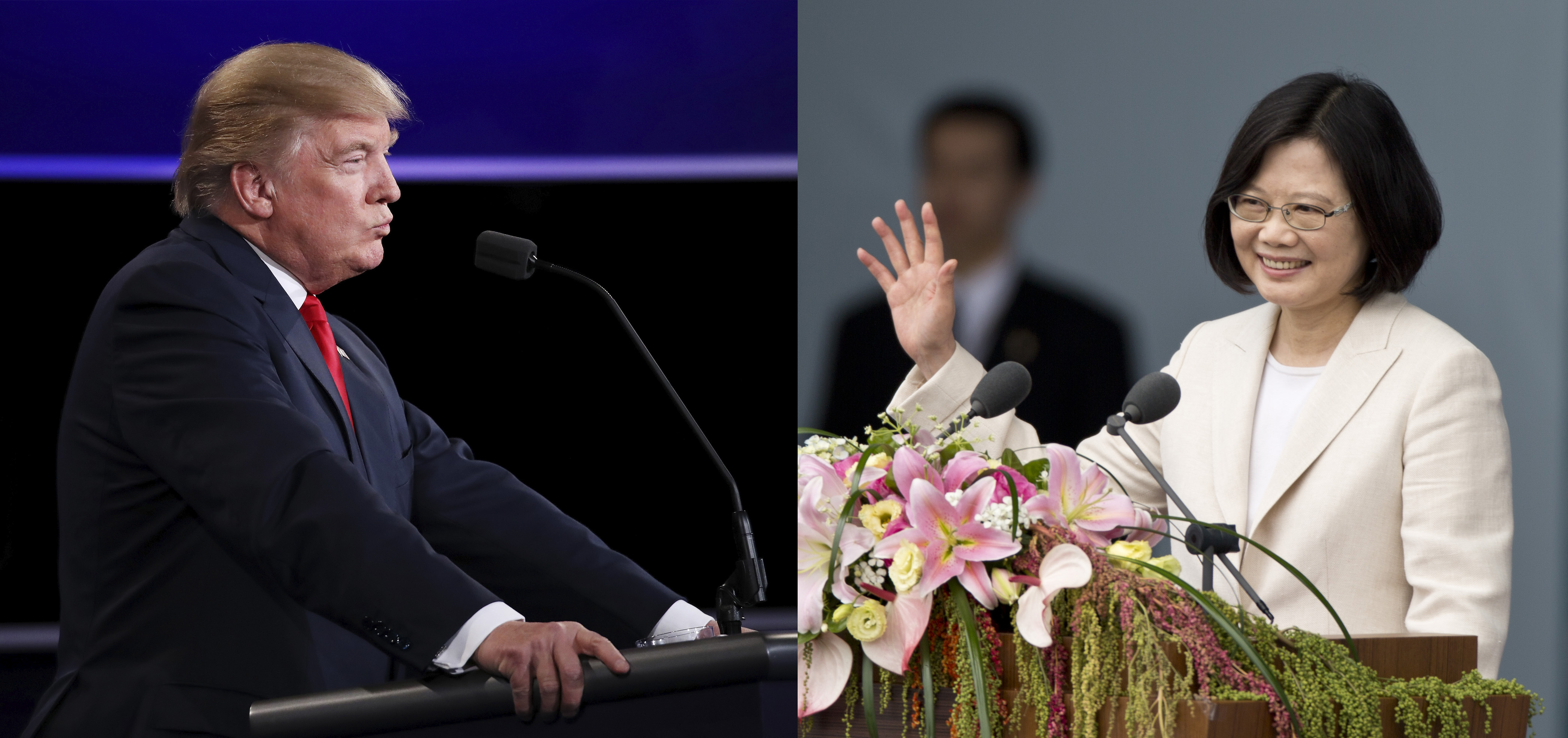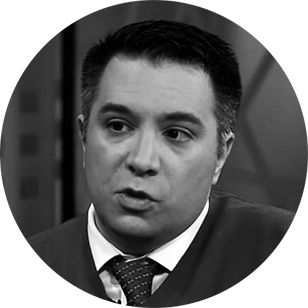China doesn't want Trump to say hello to Taiwan's president. He should do it anyway.
Just say hi to Tsai


A free daily email with the biggest news stories of the day – and the best features from TheWeek.com
You are now subscribed
Your newsletter sign-up was successful
China is on the move. From transforming man-made islands into military bases to bullying neighbors to stealing potentially trillions of dollars of intellectual property and military secrets, Beijing seeks not only to dominate Asia but to transform itself into a 21st-century superpower.
How to handle the rise of the People's Republic has baffled American foreign policy thinkers on both sides of the aisle for nearly a decade. But there is a simple action the Trump administration could take that would at least show China that America will not allow its aggression to go unchecked: President Trump should travel to Houston later this week and meet with Taiwan's President Tsai Ing-wen.
Greeting the leader of one of the most vibrant democracies in Asia as she briefly stops in America as part of an overseas trip might sound innocent, even trivial, but it would be loud and clear to Beijing. It would help reinforce the peaceful status-quo that has brought prosperity to Asia for decades, demonstrating that Team Trump will stand with crucial allies and partners in their hour of need. It would also prove that things like human rights, sovereignty, democracy, and respect for international law are key components of the Trump foreign policy agenda.
The Week
Escape your echo chamber. Get the facts behind the news, plus analysis from multiple perspectives.

Sign up for The Week's Free Newsletters
From our morning news briefing to a weekly Good News Newsletter, get the best of The Week delivered directly to your inbox.
From our morning news briefing to a weekly Good News Newsletter, get the best of The Week delivered directly to your inbox.
Such a meeting wouldn't come out of the blue but would build on recent actions by the administration. First, at the end of 2016, when Trump was president-elect, he accepted a call from President Tsai. The conversation was short and mostly filled with pleasantries — seemingly a normal courtesy call from the sitting president of one country to the future leader of another. And yet, this seemingly innocent act spooked Beijing. The Chinese feared Trump could move America closer to what Beijing considers a breakaway island province.
At the time, many analysts dismissed the call as yet another amateur move from a national security rookie probably unaware of the fact that China considers Taiwan a "core interest" and has threatened to invade if it does not someday return to the fold. But in the year and a half that followed, the administration has indeed attempted to recalibrate its ties with Taipei.
While Washington still does not recognize the island nation as a sovereign state — it dropped formal diplomatic recognition in order to open relations with China in the late 1970s — Taiwan is no longer an outcast in Washington's elite diplomatic circles. More American arms will soon flow to Taipei. There's also talk of Taiwan purchasing the F-35 stealth fighter in the future as well as greater efforts at more formal defense cooperation.
All of that is welcomed news, but more must be done to ensure Taiwan does not slowly lose what little international freedom it has. Over the past several years, China has bought off the few diplomatic allies Taiwan has left (down to just 18 nations with formal ties now). Beijing regularly flies many of its most advanced naval and fighter aircraft close to the island, causing Taiwanese military officials to scramble forces, increasing the chance of accidental conflict. China also uses its vast economic leverage over Taiwan to ensure if it ever were to become too close to America or consider formal independence it would mean financial ruin.
A free daily email with the biggest news stories of the day – and the best features from TheWeek.com
In the game of international politics words and deeds matter. If President Trump were to publicly meet with President Tsai, even for just an hour, it would send a powerful message to China that no matter how strong she becomes, she cannot subjugate the nations around her. It would demonstrate that Washington will not allow China's rise to become Asia's downfall.
Just this one meeting would make a more powerful statement than any trade war, oddball tweet, or mean-spirited play on words.
Mr. President, go to Houston.
Harry J. Kazianis is director of defense studies at the Center for the National Interest, founded by former U.S. President Richard M. Nixon.
-
 The environmental cost of GLP-1s
The environmental cost of GLP-1sThe explainer Producing the drugs is a dirty process
-
 Greenland’s capital becomes ground zero for the country’s diplomatic straits
Greenland’s capital becomes ground zero for the country’s diplomatic straitsIN THE SPOTLIGHT A flurry of new consular activity in Nuuk shows how important Greenland has become to Europeans’ anxiety about American imperialism
-
 ‘This is something that happens all too often’
‘This is something that happens all too often’Instant Opinion Opinion, comment and editorials of the day
-
 Epstein files topple law CEO, roil UK government
Epstein files topple law CEO, roil UK governmentSpeed Read Peter Mandelson, Britain’s former ambassador to the US, is caught up in the scandal
-
 Iran and US prepare to meet after skirmishes
Iran and US prepare to meet after skirmishesSpeed Read The incident comes amid heightened tensions in the Middle East
-
 Israel retrieves final hostage’s body from Gaza
Israel retrieves final hostage’s body from GazaSpeed Read The 24-year-old police officer was killed during the initial Hamas attack
-
 China’s Xi targets top general in growing purge
China’s Xi targets top general in growing purgeSpeed Read Zhang Youxia is being investigated over ‘grave violations’ of the law
-
 Panama and Canada are negotiating over a crucial copper mine
Panama and Canada are negotiating over a crucial copper mineIn the Spotlight Panama is set to make a final decision on the mine this summer
-
 Why Greenland’s natural resources are nearly impossible to mine
Why Greenland’s natural resources are nearly impossible to mineThe Explainer The country’s natural landscape makes the task extremely difficult
-
 Iran cuts internet as protests escalate
Iran cuts internet as protests escalateSpeed Reada Government buildings across the country have been set on fire
-
 US nabs ‘shadow’ tanker claimed by Russia
US nabs ‘shadow’ tanker claimed by RussiaSpeed Read The ship was one of two vessels seized by the US military
